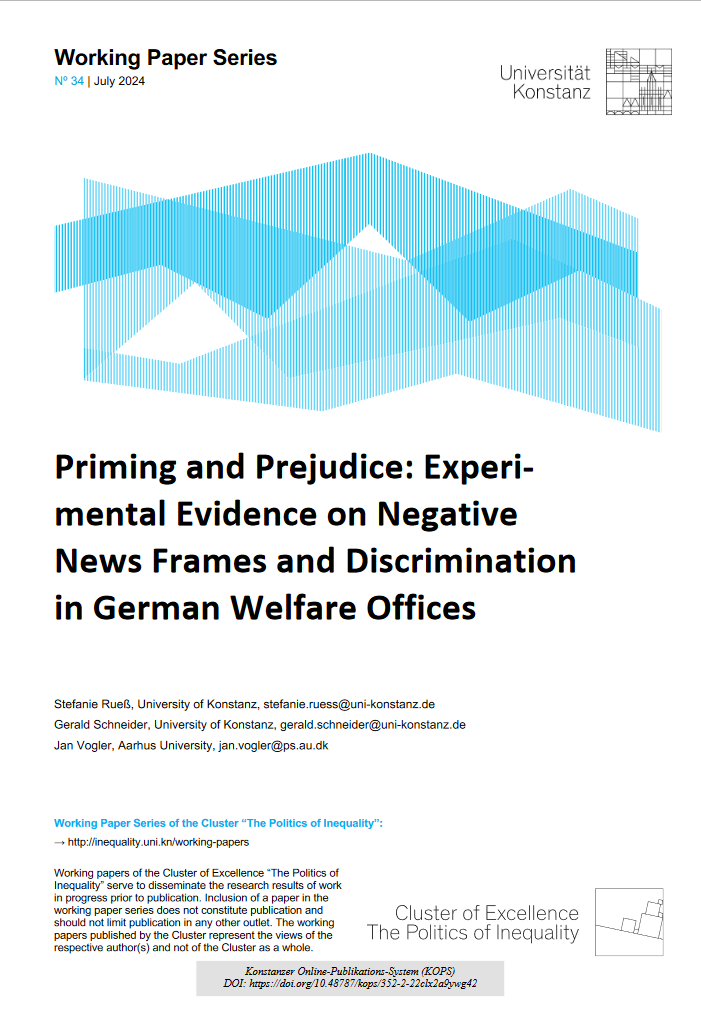Priming and Prejudice: Experimental Evidence on Negative News Frames and Discrimination in German Welfare Offices
Abstract

Does the priming of street-level bureaucrats with negative news stories on immigration influence their decisions regarding unemployment benefits? Previous research has established that regional-level peer pressure on public employees and the national-level salience of immigration debates intensify bureaucratic discrimination. By synthesizing the media framing and bureaucratic discrimination literatures, we expect that the priming of street-level bureaucrats with a news frame about welfare fraud committed by ethnic minorities leads to discriminatory practices. To investigate the validity of our theoretical propositions, we conducted a preregistered conjoint experiment with a large dataset, namely a representative survey of German street-level bureaucrats working in unemployment offices. We observe negative discrimination against Romanian claimants after exposure to a negative article, even when they provide internally consistent applications, but not toward Moroccan claimants. These effects are particularly pronounced among caseworkers leaning to the political right and living in federal states whose populations exhibit strong anti-immigration attitudes.
Sources
Rueß, Stefanie, Gerald Schneider und Jan Vogler. 2024. Priming and Prejudice: Experimental Evidence on Negative News Frames and Discrimination in German Welfare Offices. Working Paper No. 34, Cluster of Excellence “The Politics of Inequality”. University of Konstanz. doi: 10.48787/KOPS/352-2-22CLX2A9YWG42.
